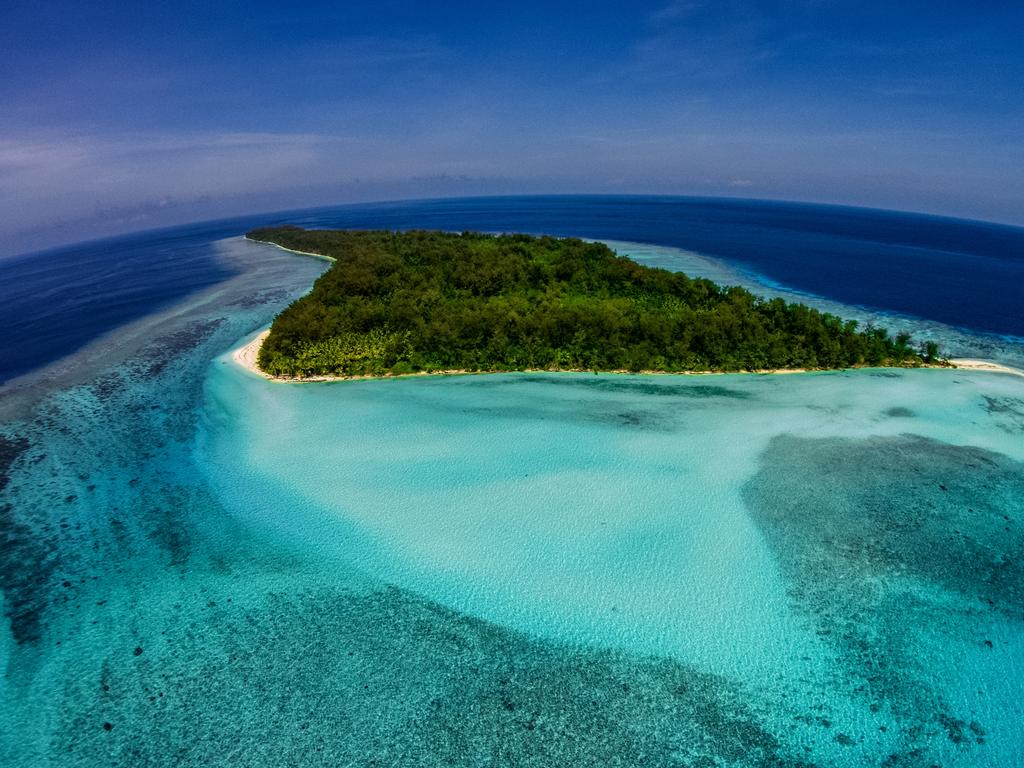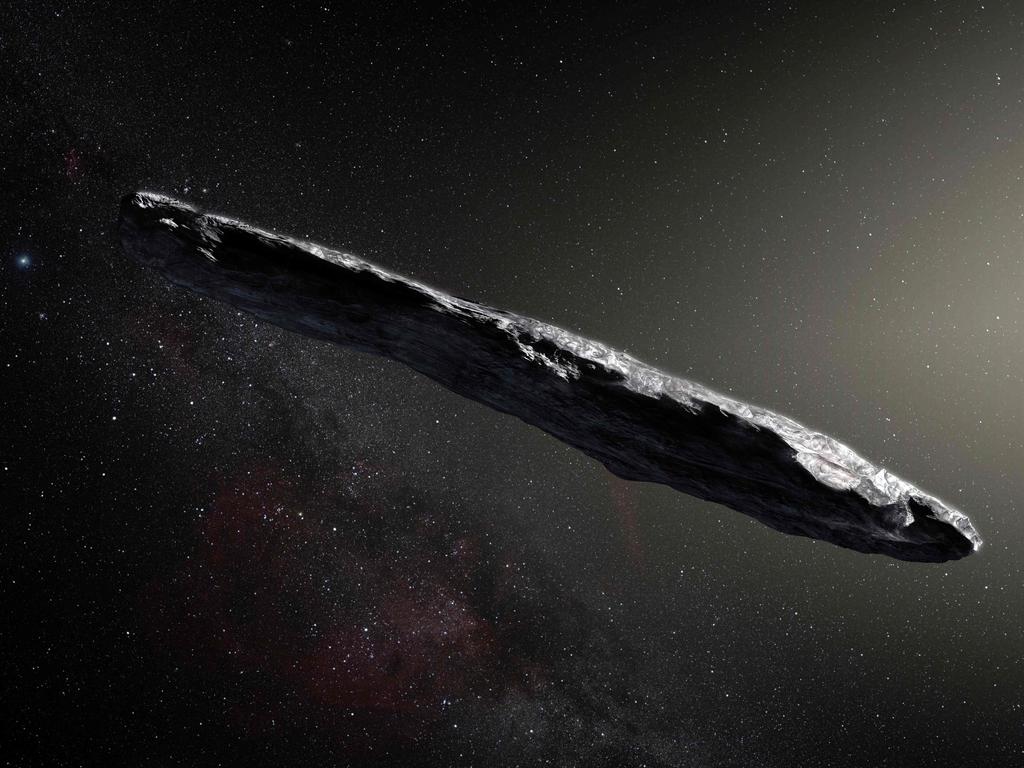Harvard professor to scour ocean floor north of Australia for crashed ‘alien technology’
A Harvard professor believes an alien spacecraft may have crashed near Australia – and he’s going to search the ocean floor for the wreckage.
A Harvard professor believes an alien spacecraft may have crashed to Australia’s north a decade ago – and he’s planning an expedition to retrieve the object from the floor of the Pacific Ocean.
Astrophysicist Avi Loeb has previously made waves by claiming the object that streaked across the sky off the coast of Manus Island, Papua New Guinea in 2014 was actually some form of spacecraft.
A US Space Command report released earlier this year found that the object was interstellar – from another star system – making it unusual, but concluded that it was simply a meteor.
But Professor Loeb, chair of Harvard University’s astronomy department and head of the Galileo Project, which is searching for evidence of advanced alien technology, insists it could have been built by extraterrestrials.
“The fundamental question is whether it was an unusual rock from another star, or was it a spacecraft?” Prof Loeb told news.com.au’s I’ve Got News For You podcast on Wednesday. “We’re planning an expedition to Papua New Guinea and scoop the ocean floor and figure out the composition of this object.”

Prof Loeb, who first teased the “fishing expedition” to retrieve the object in an essay for The Debrief in April, revealed to host Andrew Bucklow that the mission was on track for March or April 2023.
“I received $US1.5 million [$A2.2 million] last month to go ahead with this expedition,” he said.
Prof Loeb’s fascination with the topic was driven by the discovery of Oumuamua – Hawaiian for “messenger sent from the distant past” – a football-field-sized, cigar-shaped object that zipped through the solar system in 2017.
In a controversial 2019 paper, Prof Loeb speculated that Oumuamua’s unusual trajectory and shape suggested it was neither a comet nor an asteroid, but possibly an alien probe.
“So that’s what brought me into this,” he said.
“And then with my student a couple of years later, we found that actually four years before Oumuamua there was a meteor that was discovered by the US government, which moved really fast at 45km/second, disintegrated in the lower atmosphere of the Earth about 100 miles [160km] off the coast of Papua New Guinea, and it came from outside the solar system.”

Prof Loeb and his student wrote a paper about their discovery, but were instructed not to publish it because they used classified government data for their research.
But in April, the US government “confirmed our conclusion in an official letter and said that 99.999 per cent they agree with our assessment”.
“They also released the light curve of the explosion of this object, which revealed that it had material strength tougher than iron, and it was tougher than all the other space rocks that the US government identified over the past decade, about 272 of them,” he said.
“So it must have been something unusual … definitely not the same as the rocks we find in the solar system. Much tougher than that.”
While Prof Loeb believes aliens exist – or have existed – somewhere in the universe, he doesn’t think actual contact with “biological creatures” will happen.
Instead, he argues UFOs, including objects like Oumuamua, are most likely alien probes powered by artificial intelligence, potentially even surviving relics of long-dead civilisations.

“It takes 100,000 years to reach the nearest star and many hundreds of millions of years to reach the edge of the Milky Way galaxy, so it makes much more sense to send systems with artificial intelligence that are not so sensitive to the hazardous conditions of space,” he said.
“I call these AI astronauts and most likely we will see gadgets that are very intelligent; they might be well ahead of what we have.
“It might take us a while to figure out what they really are doing here and what they’re seeking, but at the same time we can distinguish them from rocks, natural objects like meteors falling on Earth … [and] we can distinguish them from human-made objects.”
In his essay earlier this year, Prof Loeb said a retrieval expedition could be achieved using “scooping” magnets to explore the 10sq km region of the Pacific Ocean where the object is thought to have landed.
“My dream is to press some buttons on a functional piece of equipment that was manufactured outside of Earth,” he wrote at the time.
Prof Loeb said he had received an email recently from someone begging him “please don’t press a button if you find such a gadget”.
“He basically was worried that it will affect all of humanity,” Prof Loeb said.
“I said, don’t worry about it, I will not press any button. It would be just a remarkable discovery to figure out that we uncovered, let’s say, the 100th version of the iPhone at the bottom of the ocean.”
Prof Loeb added he didn’t believe that such an object, if discovered, would be confiscated by a government.
“I promised the curator of the Museum of Modern Art in New York City that if we find a gadget at the bottom of the ocean, I will bring it for display in New York,” he said.
“Because it would represent modernity for us, even though it represents ancient history for the senders.”
Originally published as Harvard professor to scour ocean floor north of Australia for crashed ‘alien technology’




